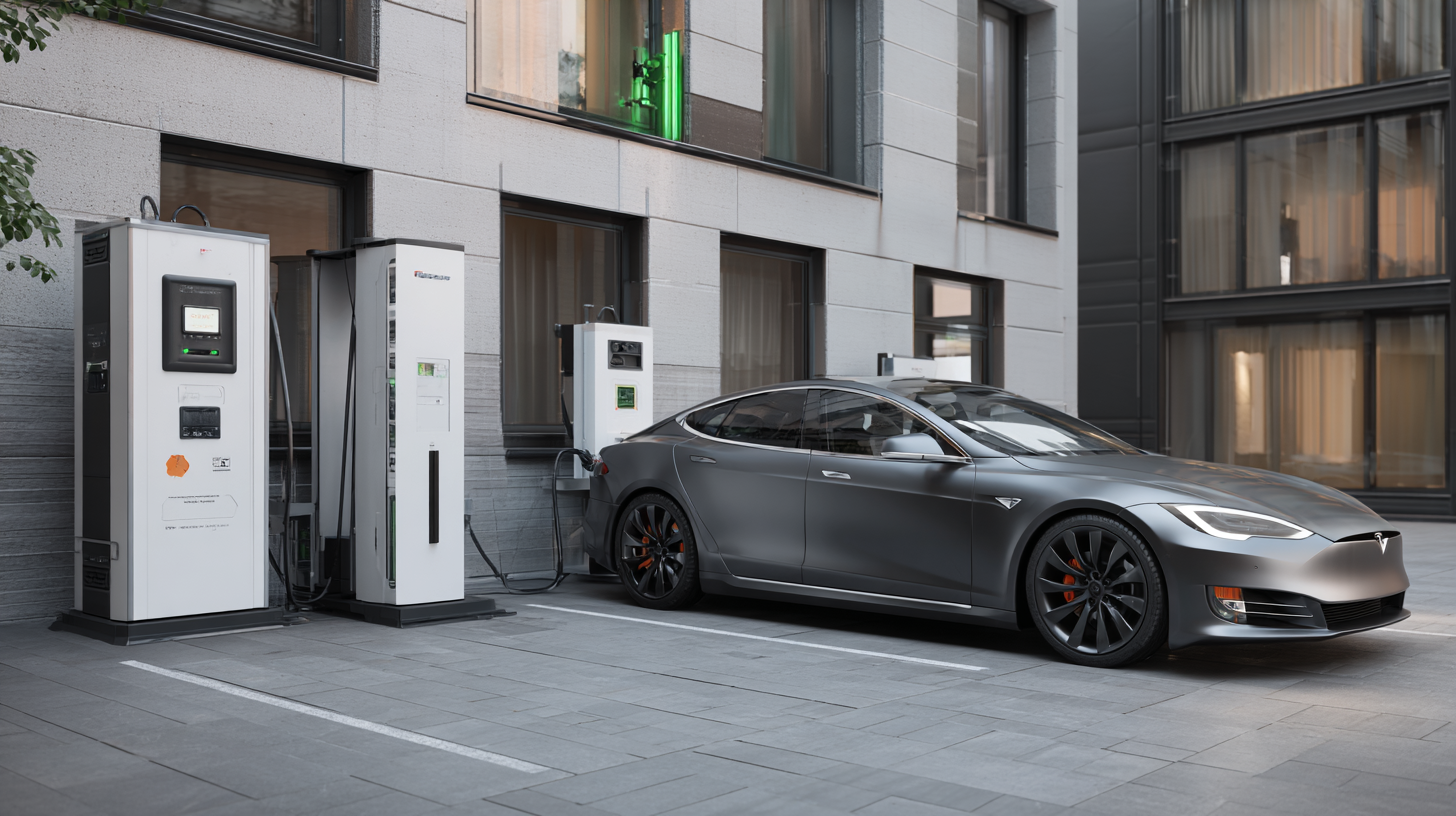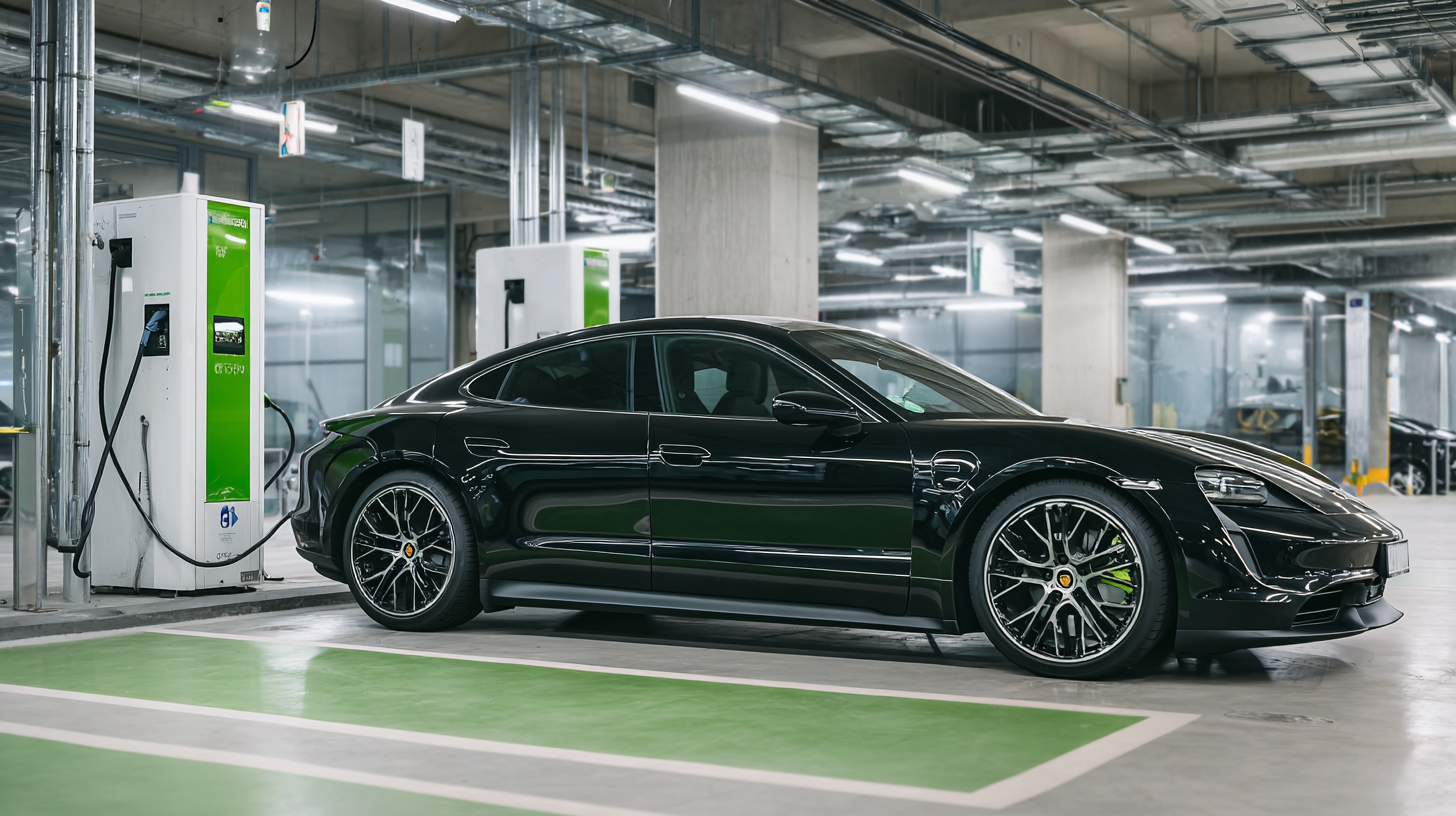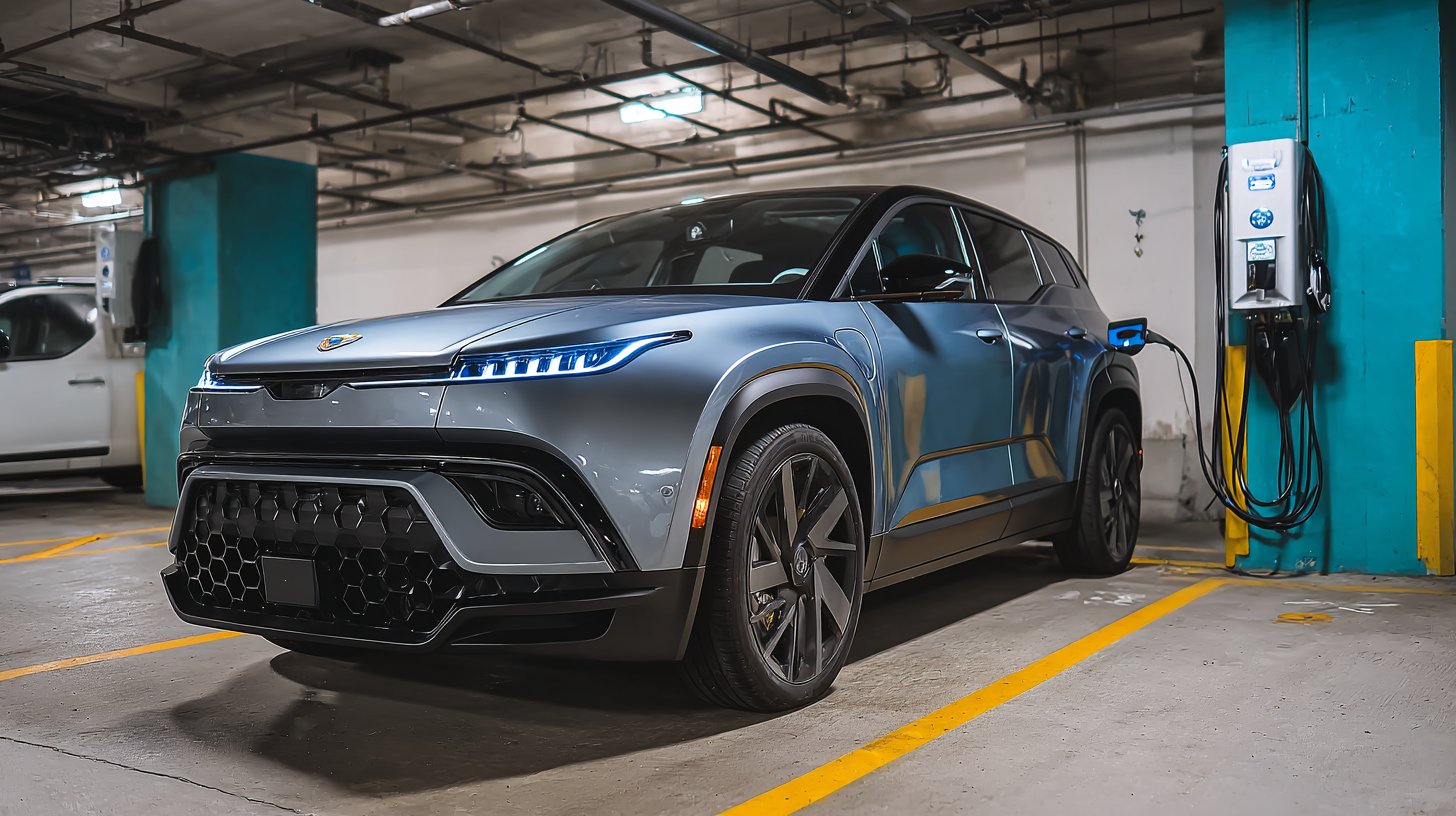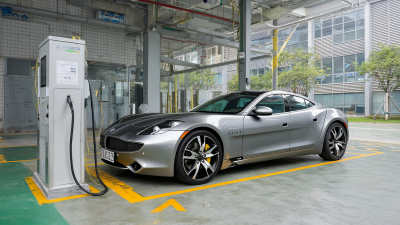
Wall Mounting EV Charge Station
Ultimate Guide to Choosing the Right Ev Charger Station for Your Needs
As electric vehicle adoption surges, the demand for efficient and suitable EV Charger Stations has never been more critical. According to a recent report by the International Energy Agency, the number of electric vehicles on the road globally is expected to exceed 230 million by 2030, necessitating a corresponding increase in charging infrastructure. This growth highlights the importance of selecting the right EV Charger Station to meet diverse needs, whether for home use, commercial applications, or public areas. With various types available, understanding the specifications, compatibility, and power requirements is essential to ensure optimal charging efficiency and user convenience. This guide aims to navigate through the essential considerations in selecting an EV Charger Station that aligns with your specific requirements and contributes to a sustainable future.

Choosing an EV Charger Station: Understanding Your Charging Needs and Habits
When considering the purchase of an EV charger station, understanding your charging needs and habits is paramount. Begin by evaluating your daily driving distance and how often you use your vehicle. If you typically drive short distances, a Level 1 charger may suffice for overnight charging at home. However, if you frequently embark on longer journeys, you may need a Level 2 charger for faster charging times, enabling you to maximize your vehicle's range efficiently.
Another critical factor to consider is the charging location. Do you have a dedicated parking space at home, or will you need to charge in public locations? A home charging station offers convenience and flexibility, while public chargers can vary in availability and speed. Additionally, assess your lifestyle—if you have access to charging at work or nearby shops, you can take advantage of those options to meet your needs. Tailoring your EV charger choice to your habits can greatly enhance your electric vehicle experience, making it not only practical but also enjoyable.
Ultimate Guide to Choosing the Right EV Charger Station for Your Needs
| Charger Type | Charging Speed | Best Use Case | Installation Complexity | Cost Estimate |
|---|---|---|---|---|
| Level 1 Charger | 2-5 miles/hour | Home Charging | Easy | $300 - $600 |
| Level 2 Charger | 10-60 miles/hour | Home or Public Charging | Moderate | $500 - $1,200 |
| DC Fast Charger | 60-200 miles/30 min | Public Fast Charging Stations | Complex | $10,000 - $40,000 |
| Solar Charger | Varies | Eco-friendly Charging | Moderate to Complex | $1,500 - $5,000 |
Types of EV Chargers: Level 1, Level 2, and DC Fast Charging Explained
When it comes to choosing the right EV charger for your electric vehicle, understanding the different types available is crucial. There are three main categories: Level 1, Level 2, and DC Fast Charging. Level 1 chargers are the slowest, typically using a standard 120-volt outlet, making them ideal for overnight charging at home. They generally provide 4 to 5 miles of range per hour of charging, which can be sufficient for low-mileage drivers.
Level 2 chargers offer a significant upgrade, using a 240-volt outlet to deliver a faster charging speed. They can provide anywhere from 10 to 60 miles of range per hour, making them a popular choice for home installations and public charging stations. For those who need to replenish their battery quickly, DC Fast Chargers are the fastest option available, capable of charging an EV to 80% in as little as 30 minutes, depending on the vehicle’s compatibility and battery size.
Each type has its own advantages and considerations regarding cost and installation, so evaluating your driving habits and charging needs is essential for making the right selection.
Evaluating Charging Speed: How Kilowatts Affect Your Charge Time
When selecting an electric vehicle (EV) charger station, understanding charging speed is crucial, and this primarily hinges on the kilowatts (kW) the charger delivers. The charging speed can significantly impact how quickly you can get back on the road, especially if you frequently rely on your EV for daily transportation. Different charger types offer various power outputs: Level 1 chargers typically provide around 1.4 to 2.4 kW, making them suitable for overnight charging at home. In contrast, Level 2 chargers increase the speed to between 3.3 kW and 19.2 kW, allowing you to charge your EV in just a few hours, depending on the vehicle’s capacity and the charger’s output.

When evaluating your charging needs, consider your daily driving habits and the time you have to charge. For instance, if you usually drive short distances and have ample overnight charging time, a Level 1 charger might suffice. However, if you often take longer journeys or require quicker charging during the day, investing in a Level 2 charger can provide more flexibility. Additionally, installing faster DC fast chargers can drastically reduce charge times, making them ideal for public charging stations. Understanding how these kilowatt ratings translate into real-world charging times will empower you to choose the right EV charger that fits seamlessly into your lifestyle.
Key Features to Look for in an EV Charger: Connectivity, Safety, and Compatibility
When choosing the right EV charger for your needs, several key features should be prioritized: connectivity, safety, and compatibility. Connectivity is crucial as it ensures your charging station can be integrated with smart home systems or mobile apps. Look for chargers with Wi-Fi or Bluetooth capabilities, as these allow you to monitor charging times, energy usage, and even schedule charging sessions to take advantage of off-peak electricity rates.
Safety is another vital aspect when selecting an EV charger. Ensure that the station has built-in safety features such as surge protection, overcurrent protection, and temperature control. These features not only safeguard your vehicle but also protect your home’s electrical system. Having a reputable brand that complies with safety regulations can also provide peace of mind.
Compatibility with multiple vehicle models is essential to make the most out of your investment. Check whether the charger supports both Level 1 and Level 2 charging options and any specific connectors required for your vehicle. Investing in a versatile charger can save you from future inconveniences. Make sure to read reviews and consider user experiences to gauge the effectiveness of both connectivity and safety features in real-world scenarios.

Cost Analysis: Budgeting for Your EV Charger Installation and Maintenance
When considering the installation of an electric vehicle (EV) charger, a thorough cost analysis is essential for effective budgeting. The initial expenditure includes the purchase of the charger itself, which can vary significantly based on the type and features—from basic models to advanced smart chargers that offer scheduling capabilities and monitoring through apps. Beyond the charger, installation costs can also fluctuate, depending on the complexity of the setup and any necessary electrical upgrades to accommodate the charger’s requirements.
Maintenance is another critical factor to consider when budgeting for your EV charger. While most chargers are designed to be durable and require minimal upkeep, periodic inspections and updates may be necessary to ensure optimal performance and safety. Additionally, owners should account for potential costs related to repairs or replacements in case of a malfunction. By planning for both initial and ongoing expenses, EV owners can better manage their finances and ensure a dependable charging solution tailored to their needs.
Cost Analysis of EV Charger Installation and Maintenance
This bar chart represents the average costs associated with the installation and maintenance of different types of EV chargers. The data includes installation, annual maintenance, and total 5-year costs.
Related Posts
-

Embracing Innovation: The Future of EV Charger Stations for Sustainable Transportation
-

2025 Trends Revealed 7 Key Innovations in Best Ev Charger Technology
-

Noteworthy Variants of AC EV Charging Cables You Should Consider
-

Ultimate Guide to Choosing the Best Ev Fast Charge Station for Your Business
-

5 Reasons Why Ac Ev Chargers Are the Future of Sustainable Transportation
-

7 Ultimate Benefits of Installing an EV Charger Station for Your Business

